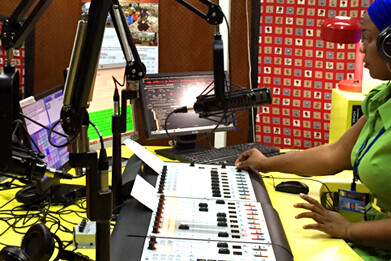Pacific media will be one of the key issue to discuss at the World Journalism Education Congress in New Zealand.
For the 4th World Journalism Education Congress in Auckland, New Zealand this week, experts and professors will be discussing the situation of the media landscape in the Pacific and its challenges.
“Journalism is central to the public interest of the Pacific, it protects culture and especially language,” Professor Damon Sales, director of the New Zealand Institute of Pacific Research said in his opening speech.
Media experts and professors working in the Pacific area gathered before the official congress to discuss the challenges they face, in a bid to improve the quality of journalism across all South Pacific.
Challenges vary across the islands. Among these, the prominent issues identified are quality of material produced, the difficulty for many people to access media and the resources, power structures, corruption and bribery, gender issues and professionalism.
Journalists from the Solomon Islands, for example, often have to publish or broadcast stories based on anonymous sources, as government officials do not want their names on the spotlight for fear of risking their jobs. This, however, undermines the quality and transparency of the work they do.
Another issue is the challenge faced by Samoan Journalists trying to ensure freedom of speech as well as the political pressure placed upon Tonga’s public broadcaster, TBC, which we wrote extensively about earlier this year.
Misa Victoria Lepou, who works at the National University of Samoa, said the conference is a chance “to make our voices hear and address our own challenges from this part of the region, other than New Zealand and Australia”.
This suggests that there is an increased need for media professionals in the Pacific to have a space in which they can express their views and work with ensured quality standards. This is partly why there has been a rise of media councils’ set up across the Pacific, with more steps taken towards the development of investigative reporting and public media.

